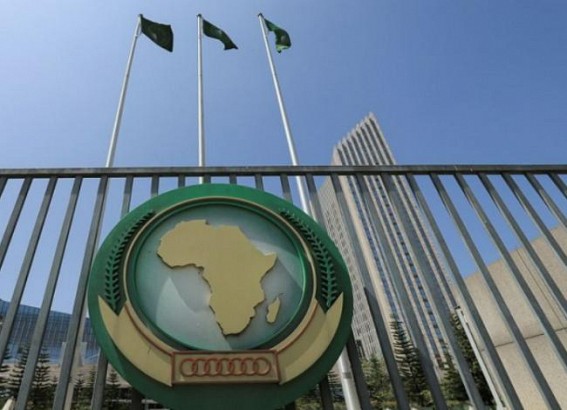TIWN

Addis Ababa, Dec 9 (TIWN) The African Union (AU) warned that travel and entry bans in connection with the emergence of the Omicron Covid-19 variant limit the free movement of people and goods, imposing immediate and significant impact on countries across the continent.
The variant was detected and announced by South Africa’s National Institute of Communicable Diseases (NICD) in November and was declared a variant of concern by the World Health Organisation soon thereafter – leading to countries across the globe closing their borders to travellers from South Africa and the region. In a statement on Tuesday, the AU highlighted that the travel bans have a multi-layered impact on countries from the Southern African region. “These travel and entry bans...lead to: adverse impact on the economy which will negatively affect the lives and livelihoods of populations concerned. [They also lead to] limited capacity to access essential medical supplies needed to respond to the ongoing upsurge of cases in South Africa [and] limited capacity for Southern African researchers and scientists to access the reagents needed to monitor spread of the Omicron variant and to investigate and characterize its impact on transmissibility, disease severity and possible evasion from vaccines.” The Union further raised concern that a targeted approach is being imposed on South Africa and its neighbouring countries despite “widespread distribution of Omicron cases globally”. The continental body added that the imposition of a travel ban and its impact could deter countries from reporting on any variant that may arise in the future. “[P]enalizing Member States for ensuring timely and transparent data dissemination in accordance with international health regulations acts as a disincentive for information sharing in the future, potentially posing a threat to health security on the continent and globally”. The union called for more emphasis to be put on the distribution of COVID-19 vaccines on the continent. “Equitable access to vaccines is key to immunize populations, control transmission of the virus and prevent the emergence of new variants. International efforts should accordingly focus on increasing vaccination coverage on the continent.”
- Russia, after Western Palestinian state recognition move, says it still backs a two-state solution
- Over 800 dead, 1000 injured inEarthquake in Afganistan
- Confident that my visits to Japan and China would further national interests and priorities: PM Modi
- Awami League warns of alarming spike in violence against women, children in Bangladesh
- 12 Killed As Under-Construction Bridge Breaks Into Two In Northwest China



